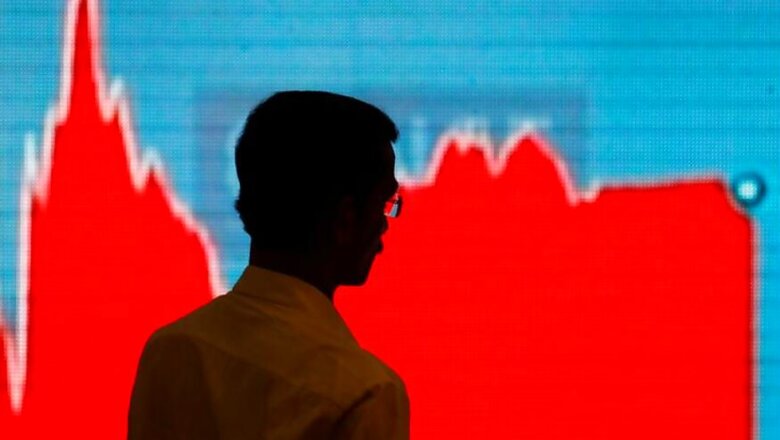
views
US Federal Reserve happens to be the biggest driver for Indian stock markets towering over oil, elections and banking shakeouts, according to the nation's biggest money manager.
Sankaran Naren, who helps manage Rs. 3.1 lakh crore as chief investment officer at ICICI Prudential Asset Management Co, told Bloomberg that investors need to brace for a run of constrained returns that will last until the Fed Chairman Jerome Powell makes a policy U-turn. Key Indian equity indexes are up less than 10 percent this year, and gauges of mid- and small-sized companies are poised for their first yearly decline since 2013.
"Once the U.S. interest-rate cycle changes and one moves to a situation where they say we are done with the quantitative tightening, then one may have a much more secular bull market in emerging markets and India," Naren said in an interview in Mumbai last week. "We are in an accumulation phase of investing, where the near-term returns aren't likely to be very high."
While the U.S. central bank's influence on emerging assets is hardly an unknown phenomenon, India's USD 2 trillion stock market has also been whipsawed in recent months by homegrown narratives. For Naren, those issues - including speculation on Prime Minister Narendra Modi's election prospects in 2019, and a cash crunch in the non-bank financing sector - will mostly be resolved in the next year, leaving the Fed as the biggest factor.
Investors around the world will find out later on Wednesday whether Fed officials will reduce their "dot plot" trajectory for 2019, which currently implies three interest-rate hikes. Economists surveyed by Bloomberg have dialed back their expectations to two.
For the next year at least, Naren doesn't see investments in Indian equities fetching more than "mid-teen" percentage in gains. "We shouldn't talk of multi-baggers now, we can't expect stocks doubling and one has to invest with expectations of lower returns than that," he said. The USD 4.1 billion ICICI Prudential Balanced Advantage Fund, the biggest that Naren manages, has returned 12.85 percent annually in the past five years, the best among its peers for that period, according to Value Research Ltd.
US stocks closed higher on December 19 as investors awaited the central bank's latest decision on interest rate hikes.
The Dow Jones Industrial Average was up 82.66 points, or 0.35 percent, to 23,675.64 on Tuesday. The S&P 500 rose 0.22 point, or 0.01 percent, to 2,546.16. The Nasdaq Composite Index was up 30.18 points, or 0.45 percent, to 6,783.91, Xinhua news agency reported.
The Federal Reserve is widely expected to hike its benchmark overnight lending rate for the fourth time this year when it concludes a two-day policy meeting on Wednesday.
While the equities market may have priced in the final hike of the year, investors will be looking for clues to the Fed's next move on monetary policies and its plan on interest rate hikes next year.
Markets have been rattled throughout the year amid fears of rapid interest rate hikes. Such concerns grew more credible over the past month as growth expectations retreated.
Market expectations for a Fed rate hike in December stood at 74.9 percent, according to the CME Group's FedWatch tool.
Rising interest rates can be a hurdle to smaller companies that carry a high proportion of debt, so any sign that the Fed plans to continue to raise rates each quarter could weigh on corporate sentiment.













Comments
0 comment